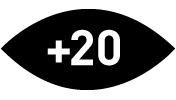

Prolific National Lampoon scribe turned advertising copywriter turned successful screenwriter John Hughes made his directorial debut in 1984 with a film that fits perfectly into the succession of raunchy '80s teen comedies while, at the same time, upended this well-worn type of quicky picture-making that the decade was so known for. The low-budget Sixteen Candles was a huge hit in theaters and an even more significant success in the burgeoning home video market. It was well-liked by critics; even those who dismissed it found many good things to say, and it became a staple of teen cinema for the next thirty years. Only in the past decade or so has it fallen from the high esteem many young cinephiles and participants in the film once held it in. Post-#MeToo, the picture has become a go-to example when criticizing '80s Hollywood attitudes about sex, gender roles, racial stereotyping, and other trends of the much-maligned decade that helped form the personalities of so many middle-aged folks like me.
I still love Sixteen Candles, and I consider it a quintessential example of why describing films as "not having aged well" is a misnomer since it's not the films themselves that change; it's the attitudes and awareness of each new generation that shift and develop. As viewers become farther and farther removed from the culture in which a movie was produced and appreciated, it gets harder to fathom how a work of entertainment that can seem so patently objectionable today was viewed as some kind of breath of fresh air when first released. But in 1984, Sixteen Candles really did feel like something fresh, new, and winsome—a teen comedy that actually cared about its young protagonists and took their feelings seriously. It was a raunchy romp that delivered everything audiences of the era expected but with a level of sensitivity and heart not previously found in the genre.
While the 1980s marked a return to movies centered on women after the near-uniformly male-dominated 1970s, there were still almost no teen comedies with female protagonists. Amy Heckerling's ensemble comedy Fast Times at Ridgemont High (1982) and Martha Coolidge's San Fernando Valley spin on Romeo and Juliet, Valley Girl (1983) were two notable exceptions. Both of those pictures were R-rated and presented teen sex from a frank and unglamorous perspective that was revolutionary for the time. What Sixteen Candles did was less subversive but more idiosyncratic. It was a softer, gentler, more emotionally vulnerable teen comedy than anything that had come before in this type of package. One has to bear in mind the context in which this film was released. The genre had been completely re-defined by the time of Bob Clark's runaway hit Porky's, as well as several other major 1982 successes like Fast Times and The Last American Virgin.
Teen movie trends say a lot about about their respective cultural eras. In the 1960s, these movies were either disposable beach comedies like Beach Party, Bikini Beach, and How to Stuff a Wild Bikini, or highbrow pictures like West Side Story, The Graduate, and To Sir, with Love. Those had given way in the '70s to darker, more personal teen pictures like The Last Picture Show, American Graffiti, and Saturday Night Fever. In 1978, National Lampoon's Animal House opened the door for a whole different type of teen sex comedy squarely centered on guys pursuing sex and getting into trouble, like Losin' It, Private Lessons, Private School, Zapped!, and the like. So when a comparatively innocent, PG-rated, female-driven story that wasn't ashamed to take the heightened feelings of teenagers seriously came along, it's not surprising that both audiences and critics found it refreshing and embraced it for what it was.
The premise of Sixteen Candles is simple but inspired. Samantha Baker (Molly Ringwald) is turning sixteen, but so much is happening as her family prepares for her older sister's wedding that everyone forgets her birthday. The film follows Samantha—and two guys who are interested in her—for the day, night, and day after her sixteenth birthday. A lot of comedic situations occur over this contained amount of time. Sam goes through all the events of a typical school day, which is made all the more dreary by the fact that no one acknowledges her "special day." Also, an annoying freshman is relentlessly pursuing her, hoping she'll go out with him. In the evening, there's a school dance and a wild after-party. The following morning, there's Sam's sister's wedding, which means grandparents are staying at the house. These older folks bring with them all kinds of other chaos and complications. On top of all that, Sam is nursing a crush on a hunky senior whom she believes doesn't even know she exists.
Samantha is presented as an ordinary girl awkwardly lusted after by a younger freshman—Anthony Michael Hall's Farmer Ted, AKA “The Geek”—but whom most upperclassmen dismiss as a child. She has a crush on a senior, Michael Schoeffling's bland but popular hunk Jake Ryan, who is losing interest in his hard-partying jock lifestyle as well as his hot girlfriend, Caroline Mulford (Haviland Morris). Jake finds himself intrigued by the younger girl's softer, quieter, perhaps more genuine emotions but has even less of an idea of how to approach Samantha than she has of him. All three characters have been playing out social roles they've gleaned from the society they've grown up in, and all three have found these identities lacking. At the begining of the film, Samantha looks in the mirror and doesn't see the preconceived image of a mature, desirable sixteen-year-old she'd hoped she'd find. Jake has embodied his role as a high school heartthrob seemingly to perfection, but it hasn't made him happy. Ted has adopted the swagger and feigned confidence of a smooth operator because he believes that's what girls like when, in actuality, only his fellow geeks think he's even remotely cool.
The movie became the breakout film for its young lead, Molly Ringwald, a teen movie star unlike any that had come before. She embodies her character of Samantha Baker as perfectly as Tom Cruse did Joel Goodson in the prior year's Risky Business—another altogether different benchmark in the maturation of the teen sex comedy. Just as every signature of what would become "the John Hughes movie" is present in Sixteen Candles, Ringwald's screen persona emerged fully formed with this picture. So many things set her apart from the typical "girl in a teen movie" that had come before. First and foremost, Ringwald was a teenager, rather than the twenty to thirty-year-olds who usually populated teen movies up to this point. Both she and Hall were fifteen when they made this film. Ringwald was not "conventionally beautiful" by the standards of the day, but she possessed a unique look and fashion sense that made her one of the biggest style icons of the decade. Unlike most girls in teen movies, Ringwald's Samantha isn't sexualized in the male gaze manner that was de rigueur up at that time, even in films directed by women like Fast Times and Valley Girl.
Though the movie is focused on its central character's internal dilemma, Sixteen Candles still delivers the type of zany antics and lewd scenarios audiences expected from this genre at this time. By 1984, the rating system had become a complete joke, leading to parent groups demanding the MPAA create the PG-13 rating that year. At this point, however, a movie could be PG and feature multiple curse words, underage drinking, allusions to teenage sex, and even a shot of bare breasts in a scene where characters spy on a girl taking a shower—though, in this case, the peepers are girls themselves. Unlike the horny boys of Porky's, in Sixteen Candles, it is Samantha and her friend (played by Liane Curtis) who are gazing at Jake Ryan's girlfriend, Carolyn. Rather than ogling her, they're comparing themselves negatively to her fully developed form and wondering how they can possibly compete. The PG-rated picture's central premise is even stated with an F-bomb as the button on the pre-credit sequence with Ringwald's Sam uttering, "Unbelievable, they fucking forgot my birthday!"
Most notoriously, the film features the Geek being "gifted" Jake Ryan's passed-out girlfriend at the end of the party scene. Proving what a "good guy" he is, Jake doesn’t take advantage of Carolyn's inebriated state himself and instead loans Ted his father's Rolls Royce to drive her home, despite Ted being drunk and never having driven a car before. Whether or not Ted and Carolyn actually have sex that night or just fall asleep in the Rolls is debatable, but there's no question that much of what transpires during and after Jake's party is, as the kids say these days, beyond cringey. Of course, there's nothing that happens in Sixteen Candles that wasn't standard operating procedure for this genre at this time, but the many problematic aspects feel so much worse in the case of a movie that cleverly circumvented convention in other ways and became so beloved by so many generations of both boys and girls. Prior to this movie, the principal emotional building blocks of the typical teen sex comedy were limited to lust and humiliation, with most of these films revolving around attempts to satisfy sexual curiosity and desire that get thwarted in increasingly embarrassing ways. Whereas Sixteen Candles tapped into and reflected many more specific longings and insecurities that all kids feel when going through adolescence.
We didn't see many vulnerable characters achieve their heart's desire, as we ultimately do with Samantha. Nor were characters like the shy, plain girl and the awkward, geeky guy presented with so much dimension. Sam and Ted are archetypes that weren't meant to be main characters in teen movies; they were always secondary and mostly there for broad comedic situations. Heartfelt scenes like the one between Ringwald and Paul Dooley, in which Sam's father, who up to this point has been painted as an embarrassing, out-of-touch doofus, realizes that he forgot her birthday, were never part of this genre. And no movie of this ilk had ended on such an unapologetically earnest and romantically upbeat note. Sixteen Candles was a product of the pre-ironic era, in which a movie that concluded with a hopeful, happily-ever-after sequence made young, mainstream audiences swoon rather than roll their eyes.
After the production of his first three produced screenplays in 1982 and '83, National Lampoon's Class Reunion, Mr. Mom, and National Lampoon's Vacation—each of which bested the box office of its predecessor—Hughes had been eager to direct his own films. He wrote the script for the movie that would become his most iconic, The Breakfast Club, but producers felt that he should try to direct something more conventional before attempting the talky, single-location project. He supposedly wrote Sixteen Candles in a weekend (his speedy, stream-of-consciousness writing style was something he was both celebrated and criticized for throughout his career). Hughes knew he wanted to write about a sixteen-year-old girl on the day everyone forgets her birthday. He apparently saw Ringwald playing the daughter of John Cassavetes and Gena Rowlands in Paul Mazursky's Tempest (1982), got her headshot from his agent, pasted it on the wall above his typewriter, and wrote the film with her in mind. He probably also wrote The Geek for Hall, as he would have known about the young actor's scene-stealing abilities from Vacation, in which Hall often matches Chevy Chase in terms of laughs per scene. A new crop of upcoming young talent was about to explode in this pre-brat-pack year, so Hughes and casting director Jackie Burch had their pick of the litter. They snagged the talented stage actress Blanche Baker for Sam's older sister and Justin Henry—the youngest ever Oscar-nominee at eight years old, for his debut performance in Kramer vs. Kramer—for her obnoxious little brother, Mike. At thirteen, Henry is almost unrecognizable from the innocent little tyke of Kramer, scoring laughs with his snarky, off-color line deliveries.
For the Geek's two wingmen, Hughes invited Hall to the casting of extras and told him to pick out the two guys he thought he'd be friends with in real life. Hall chose the distinctly nerdy Darren Harris and the more conventionally handsome John Cusack, who became Ted's best buds in the film. Cusack's star would also launch from this movie when he was cast as the lead in The Sure Thing and Better Off Dead immediately after. The grandparents are played by a phenomenal quartet of stage and screen vets—Edward Andrews and Billie Bird as Sam's father's fuddy-duddy folks and Max Showalter and Carole Cook as her mother's more urban parents who attempt to remain stylish and spry. As with most Hughes films, Sixteen Candles was shot in the director's hometown of Chicago, and up-and-coming young Chicago actors like Joan Cusack and Jami Gertz also populate the picture.
By far, the most controversial piece of casting is Gedde Watanabe in the role of Long Duk Dong, an Asian exchange student living with one set of Sam's grandparents. Watanabe's portrayal of this awkward, stereotypical foreigner is the other major reason Sixteen Candles is shunned by viewers and commentators today. But I will stick up for Long Duk Dong, as I don't think he's only a walking ethnic stereotype or a one-note punchline. It's certainly true that most of Watanabe's early career was limited to broad ethnic roles of this sort. He also starred as the plant manager Takahara Kazihiro in Ron Howard's Gung Ho, a culture clash comedy about a Japanese corporation's takeover of an American car manufacturing plant. He played At Toon, the only Taiwanese native who speaks English in the Tom Hanks/John Candy/Rita Wilson Peace Corps comedy Volunteers. And he was Kuni, the game show hosting karate teacher in "Weird Al" Yankovic's UHF. Like many minority actors of his time, he did not get a lot of opportunities to play outside of the narrow clichés available in film and television. But Watanabe is a skilled actor who made each of his characters distinctive and memorable, bringing a lot of heart and nuance to every film he made.
The role of Long Duk Dong is certainly offensive on many levels. Still, when viewed within the film’s context, he is not all that different from most of the comically exaggerated characters who populate the comparatively ordinary Samantha's world. In contrast to Sam, who can't seem to catch a break, at least as she sees it, Dong jumps right into the high school party Sam can't seem to navigate. Despite his awkward style of dress and limited mastery of English, Dong finds a girlfriend right away (the hilarious Deborah Pollack). Her unusually tall stature is unquestionably meant to play on Dong's smaller size, but it's Dong who has a fun night out while Sam spends most of her sixteenth birthday evening sulking on the sofa. I know that the popularity of this movie caused many Asian grade-school and high schoolers to be mocked as looking or sounding like Long Duk Dong, but that doesn't mean the character is indefensible or the performance is cheap or sloppy. Hughes and editor Edward Warschillka even double down on how much Dong is meant to be the butt of their joke by placing a banging gong on the soundtrack at pretty much every mention of his name. Again, none of this is to say that the movie "does not age well" since it was always offensive, and I assure you, plenty of folks in 1984 spoke out about it at the time. However, to see an example of an actual one-note Asian character, one only needs to watch Revenge of the Nerds, which would come out two months after Sixteen Candles. In that other '84 film, Brian Tochi plays Toshiro Takashi, one of the least dimentintional or funny of that movie's ensemble of nerdy protagonists. Takashi is relegated to taking pictures with his oversized camera and occasionally reacting goofily to anything involving sex. Unlike Dong, nothing about that lazily written and performed role surprises the viewer.
Now, Revenge of the Nerds is also a film I quite enjoy, but I can't go to bat for it the way I will for Sixteen Candles. I do think there are many ways in which one can favorably compare the originality and heart of Candles to the generic and opportunistic crassness of Nerds, but just because something isn't "as bad" as something else doesn't mean it's good. It also stands to reason that a film can be good, or even great, while still containing a lot of objectionable material. Sixteen Candles is racist, ageist, nerdist (the nerd characters never crossover to heroic status the way they do in Revenge of the Nerds, though Hall's performance is so winning he got that ball rolling), and also elitist. Almost all John Hughes movies would be accused of being wannabe-yuppie wet dreams as the filmmaker's somewhat conservative politics became more well-known. Most of his heroes occupy the privileged world of the Chicago suburbs (as Hughes did), and the run of teen pictures he created in the 1980s all but ended the slobs vs snobs aesthetic that typified teen and arrested-adolescent movie comedies. Hughes' characters, even the working-class heroes of Pretty in Pink and Some Kind of Wonderful, exist in or aspire to a rarified lifestyle, with the filmmaker's most entitled teen protagonist, Ferris Bueller, epitomizing the privileged Hughes aesthetic.
None of that changes the fact that Sixteen Candles and many other films in the John Hughes canon contain an abundance of truths concerning the navigation of adolescence. Ringwald and Hall's outstanding, singular performances and everyone else in the Sixteen Candles cast should be celebrated. The movie is also a rare example of a debut film that created its own genre. It remains a special picture—a landmark of all that was both glorious and problematic about '80s teen cinema.
John Hughes and Molly Ringwald launched a singular collaboration in their respective debuts as film director and leading lady in the much-celebrated and much-derided teen comedy that forever changed the genre.










